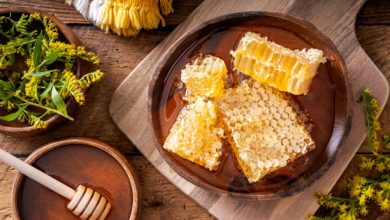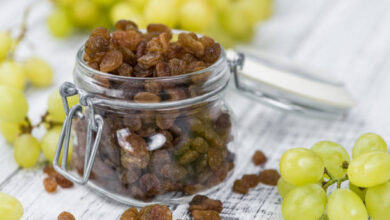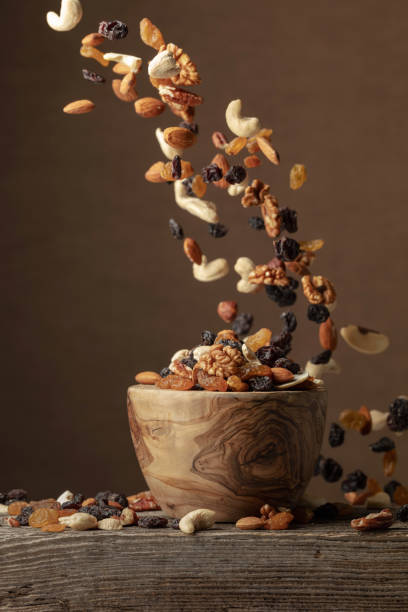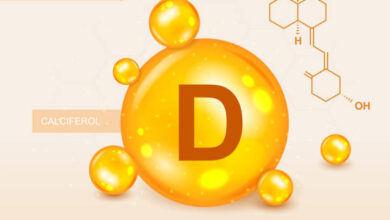
Fruits offer essential nutrients to support a healthy heart, such as fiber, potassium, and antioxidants. For those with high blood pressure, incorporating a diverse selection of fruits and vegetables into your diet could aid in blood pressure management. Furthermore, certain fruits possess nutritional qualities that can assist in stabilizing or reducing blood pressure levels.
Top Fruits to Help Lower Blood Pressure
Bananas

Bananas are a nutritious and delightful choice for supporting lower blood pressure. Packed with vital nutrients such as potassium, fiber, and vitamin C, bananas provide numerous advantages for cardiovascular health. Their potassium levels help offset sodium intake, promoting the relaxation of blood vessels. Furthermore, antioxidants like vitamin C and catechins improve endothelial function, aiding in the reduction of blood pressure. Additionally, the soluble fiber in bananas, particularly pectin, contributes to lowering cholesterol and improving overall cardiovascular health.
Avocados

Avocados are great for your heart as they are packed with dietary fiber and healthy unsaturated fats. Each serving provides 250 milligrams of potassium, about one-third of a medium avocado. Including potassium-rich foods in your diet can help offset the negative impact of sodium on blood pressure.
The Power of Berries

Whether you’re a fan of raspberries, blueberries, or blackberries, these fruits could support lower blood pressure, as suggested by the doctor.
The doctor explains, “Berries are packed with antioxidants, particularly anthocyanins, which have been linked to blood pressure reduction according to various studies, including a 2021 report in Molecular Nutrition & Food Research indicating a correlation between higher anthocyanin intake and decreased risk of heart disease.”
While you can enjoy tasty recipes such as our High-Fiber Raspberry-Vanilla Overnight Oats and Blueberry & Spinach Smoothie, simply snacking on a handful of berries can also offer the same benefits.
The Health Benefits of Kiwi

Kiwis are a great source of vitamin C, which can reduce blood pressure in individuals with primary hypertension. Recent studies have shown that incorporating a daily serving of kiwi into your diet may lead to a decrease in systolic blood pressure. Additionally, kiwi contains potassium, which could further enhance its beneficial effects. Whether enjoyed on its own, alongside a meal or garnished with chocolate and pistachios for a nutritious dessert, incorporating kiwi into your diet can be a smart choice for your well-being. For more details, refer to a 2022 study published in Nutrients.
Apples

Eating an apple daily can assist in naturally reducing blood pressure. Although it may not carry the same catchphrase, the statement holds. Even for individuals with normal blood pressure levels, the antioxidants present in this delightful fruit aid in preventing potential health issues in the future.
Pears

Pears contain powerful antioxidants, including procyanidins and quercetin, which can enhance heart health by enhancing blood pressure and cholesterol levels. Consuming pears frequently might also lower the risk of stroke.
Grapes for Blood Pressure

Grapes serve as an excellent potassium source that is associated with reducing blood pressure levels. Consumption of this fruit can aid in lowering elevated systolic blood pressure, a factor linked to heart disease. Systolic blood pressure constitutes the upper number in a blood pressure reading and denotes the pressure exerted on artery walls during heartbeats.
Raisins and Blood Pressure Regulation

Foods rich in potassium play a key role in blood sugar regulation, and raisins are a good source of this essential mineral. Moreover, they are also packed with dietary fiber. However, solely consuming raisins may not suffice for effectively lowering blood pressure. It is advisable to adopt a plant-based diet, engage in regular physical activity, and abstain from smoking, as these habits are conducive to maintaining lower blood pressure levels. Additionally, avoiding excessive weight and unhealthy fats, and incorporating healthier fats from sources such as avocado, olives, seeds, and nuts into your diet can contribute to overall heart health.
Mangoes

Mangoes play a beneficial role in maintaining a healthy cardiovascular system. They serve as an excellent source of magnesium and potassium, both of which are associated with reducing blood pressure and maintaining a steady pulse.
Watermelon
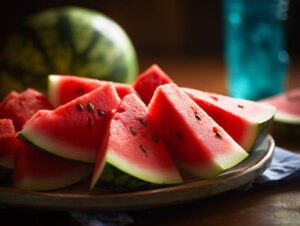
Watermelon, Citrulline is converted to arginine in the body, which in turn helps in the production of nitric oxide. This gas facilitates the relaxation of blood vessels and promotes greater flexibility in arteries. These physiological effects support improved blood flow, potentially contributing to the lowering of high blood pressure.
Pomegranates

Pomegranates are rich in antioxidants and other compounds. That may aid in the prevention of high blood pressure and atherosclerosis according to a Trusted Source. A 2018 trial suggests that regular consumption of pomegranate juice could potentially decrease systolic. And diastolic blood pressure in individuals with diabetes. However, additional research is necessary, as emphasized by the authors.


